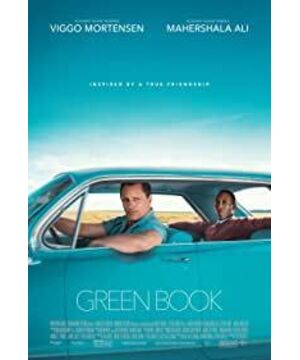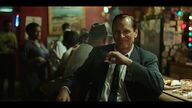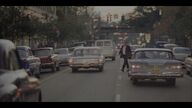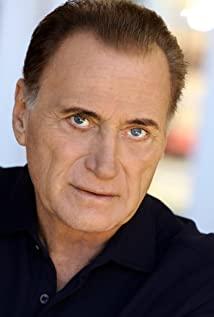About the "Green Book"
Before understanding the movie, we need to look at the historical background of the story:
In the 1960s, the black civil rights movement represented by Martin Luther King was surging, especially in the south. Prior to this, the Montgomery bus boycott, the Little Rock incident, the Free Passenger Movement and other incidents of black people fighting for racial equality were staged one after another. In the South, the KKK is active, and the white group’s hatred of blacks has also become increasingly fierce.
The entire southern air was filled with the smell of burning gunpowder.
Before 1965, apartheid was written into the law in the United States. This series of laws was called Jim Crow Laws (Jim Crow was derived from the role of black slaves in 19th-century dramas and gradually became The term "black" refers to the laws governing the segregation of people of color (mainly African Americans, but also other ethnic groups) in the southern states and border states of the United States from 1876 to 1965.
If you are black and appeared in the southern United States before the 1960s, then your fate must be tragic. For example, in transportation, whites and people of color should buy tickets and wait in separate compartments; for children’s education, schools for white and black children should be operated separately; restaurants should provide exclusively white services or exclusively colored people’s services, and not Should serve different races in the same room at the same time; renting a room, renting a room in an all-white apartment to black people, or renting a room in an all-black apartment to white people, should be fined or imprisoned, etc.
Some even directly prohibit blacks from entering certain towns after sunset. This kind of town is also called "Sundown Town", or "Sundown Town" (mentioned in both the film and the video)
In 1962, on the eve of the climax of the affirmative movement, the black musician Don Shirley went to tour south. The story of [Green Book] took place during this journey.
The "Green Book" in the title was originally a direct testimony of this period of history.
The full name of the Green Book is "The Negro Motorist Green Book", which means a safe travel guide for black travelers. Its slogan is "Now we can travel without embarrassment."
In 1936, Victor Hugo Green, a post office worker in the black community of Harlem, New York, and his wife published the first "Green Book."
In their book, they compiled the restaurants, hotels, hotels, and vacation destinations that were willing to host black travelers. After the first edition in 36 years, the sales of this not thick green booklet soared.
People nowadays have rarely heard of the existence of the "Green Book", but for decades at that time, this Green Book could be regarded as the bible of every black traveler.
This book was published until the mid-1960s. With the progress of the affirmative movement, it finally completed its mission in 1966. After the last issue was published, it withdrew from the stage of history. The apartheid policy gradually came along with the mighty civil rights movement. end.
About "Green Book"
"Green Book" is easy to think of several movies: "Driving for Miss Daisy", "Unreachable", "Bucket List" (all black and white road movies with dual masters); even "Rain Man" ( In a road movie with dual masters, both sides have objectivity advantages and disadvantages, "Green Book" is a race, and "Rain Man" is a mental retardation).
Therefore, the film has several successful labels-racism, class consciousness, road movies, black and white dual masters, healing tenderness. Not surprising (at least in terms of subject matter).
The script also develops linearly according to the time of the characters, and there are not many skills in photographic editing and sound effects. Relying on the good core theme and high degree of completion of the film, it can still become a good film alongside the above classics.
"Green Book" is "good" because it outputs a good story with high quality (the core of a good story is often more important than the plot). The success of "Driving for Miss Daisy", "Unreachable", "Last Wish List", and "Rain Man" is probably the same.
Characters establish (antagonism), contradictions, conflicts, dissolve the situation, re-establish the situation, break the situation, and finally reach a reconciliation. The plot advances layer by layer, and the relationship between the characters gradually progresses. With some humorous condiments, and healing golden sentences from time to time. Although the story is only a single linear development, the audience does not feel monotonous and bored. Even because of such a linear narrative, it lowers the threshold for the audience to enter, enhances the enjoyment of viewing, and makes it easier for the audience to understand the story.
Understanding the story is conducive to understanding its core-race, class, and friendship; the realistic meaning of eliminating discrimination and estrangement that the film wants to convey can be realized.
This kind of simple narrative also makes it gain more audience favor.
About Don Shelley
The biggest highlight of "Green Book" is undoubtedly the wonderfulness of the dual masters.
However, although the two main characters of the film are set up, the two characters are equally important, and each is wonderful; the performances of Vigo Mortensen and Mahsala Ali are also impeccable, as evidenced by the two-person awards season receiving awards all the way; From the perspective of the complexity of the character and the "suspense" of the character's motivation, Tang Shili is undoubtedly more complicated and profound.
Tony Lip (in terms of role characteristics) is certainly good. He is vulgar, dreadful, informal, rude, violent, and socially messy, but he is not scornful, but is principled, sentimental and righteous. It can be said to have a full image and distinctive features, but it is indeed more than distinctive, complicated and insufficient.
The motive of the character's behavior is only logical to do what should be done-the discrimination, the disgust, the touch, the obedient and obedient, the fulfillment of the duty, and the natural probation in the end. It is also wonderful, but it is clear and reasonable, the mysterious suspense is not enough, and it lacks the depth to be explored.
Tang Shili's "loneliness" and the "sympathy" inspired by it are reflected in many ways.
Black identity is one side (the brighter side), the pianist is the other side (the contradictory side), the sexual orientation is the third side (the more obscure side), and the self-esteem held by the personality itself is the fourth side (understanding).
He is a canary (a gifted musician) imprisoned at the top of the pyramid, an invisible cage- "black is not black enough, white is not white enough, not even man enough" -restricting his freedom. But his self-esteem does not allow himself to be trampled arbitrarily-because "only dignity can give you the upper hand . "
He is not "white" enough, so he is not accepted by the white class——
"The white people paid me to play for them because it made them feel that they were literate, but when I stepped off the stage, in their eyes, I immediately became a black man, because this is their real culture."
This is the state of existence of black artists in that period. Here is another real example to illustrate:
At the 1940 Oscars ceremony, the black actress Heidi McDaniels in the [Gone with the Wind] crew won the best female supporting role as a nanny and became the first African-American actor to win an Oscar in history.
But under the stage of the Oscar ceremony, she could not sit with stars such as Vivien Leigh and Clark Gable. Because of the quarantine policy, she can only sit in a small corner alone.
And at the premiere of the movie, she couldn't even appear on the stage.
[Gone with the Wind] Heidi McDaniels and Vivien Leigh in
Even today, this racial status gap still exists somewhat in American society. The road to racial equality is still long.
He is also not "black" enough. His knowledge, accomplishments, work, and status make him incompatible with ordinary blacks.
The meaningful scene in the movie: The car broke down halfway, Don Shirley stood by the car and saw the black farmers working in the roadside fields. They also stopped to look at him-a white man was serving a well-dressed black man. It will inevitably make them curious.
He suddenly felt uncomfortable, even embarrassed.
Naturally, he did nothing wrong, everything was just normal income, there was no reason for guilt, and he should even be proud of being able to "turn over" for the race.
But he could not be proud of these compatriots. He has only one kind of pride, and he often maintains this kind of "prudence" in front of white people-he wants to declare to them "I am equal, and I also respect." This is a kind of self-esteem of resistance. Naturally it is not suitable in front of compatriots.
As for showing off, he knew that although this white man served him, his social status was actually higher than him.
Perhaps at this moment, he suddenly realized that "we" were still the same, and that they were all black people. Their suffering reflects the fragility of his heart.
This was the first and only time that his upright dignity appeared loose during the entire journey.
Some people may think that he should be integrated into the circle of "his own people", but this notion that he must be integrated into the "black circle" because of the "black" is another kind of discrimination.
The excitement of the movie is the contradiction between the two, while the excitement of Don Shirley is its own contradiction. Coupled with his sexual orientation, the alienation from his relatives has aggravated the color of personal loneliness.
If he was just such a poor, fragile canary, he would be nothing more than a sympathetic black man under the tragedy of another era.
But he didn't sit still, maybe he will always be the lonely canary, but it doesn't mean he doesn't know what to do.
He is a black musician, a musician with a classical background, and a musician who "not everyone can play Chopin as well as me". Although the white class forbids him to play classical music-because it is white music, he can only play pop music. But this doesn't mean that he is the kind that white people recognize—a black musician with a cigarette in his mouth and a whiskey on the piano.
He wants to change their minds.
He is a gentleman, and his talent, knowledge, education, and taste have brought him to this gentleman status. He doesn't like eating fried chicken with his hands, he doesn't like to talk and behave rudely, don't litter, refuse to urinate anywhere, refuse to play games with black people that he is not interested in-these Tony thinks "what black people should do".
He is black, but it does not mean that he is like any black. He is a pianist, a gentleman, he has the dignity and character of a gentleman. He wants to let the white class know that black people are not just inferior people, they can also be musicians and gentlemen. You can disrespect me, humiliate me, and the times can not allow me to resist, but I will declare to you with self-esteem, "I am not inferior", and I will face your discrimination with integrity and treat your inequality with neither humble nor humble.
"It's not enough to change the minds of the masses by talents. We have to rely on courage."
"Violence can never win. Only maintaining dignity will make you win, and self-esteem will give you the advantage."
Real warriors dare to face the bleak life. I think Don Shirley will probably do it.
The lonely and contradictory Tang Xieli realized his personality sublimation under the glory of "guarding dignity".
Speaking of the wonderful role of Don Shirley, I would like to talk about anecdotes outside the film.
This film is based on real events, and one of the film's screenwriters is the son of one of the heroes, Tony Lip. After the movie was released, it attracted dissatisfaction from Don Shirley’s family, who thought it described Don Shirley as not eating fried chicken, and alienated from his only brother (in fact, he has three brothers and keeps normal relations), homosexuality (Tony) The son said, "Shelly never made it public that he was gay. The plot described in the movie is the only story about Shelly's sexual orientation I have ever heard of." ) The movie is simply a "symphony of lies".
Tony’s son said that the entire script was agreed upon with the two prototype characters, and with Don Shirley’s consent, the filming would begin after he died.
This matter can no longer be verified because the two archetypes have passed away.
Back to the movie, Tony Lip's character was portrayed very positively—family harmony, responsibility, affection and righteousness; although his personality and living habits are rough, it does not have much negative impact on the character; and Don Shirley It is indeed burdened with a lot of negative personal settings: excessive rigor, rigid, rigid, lonely, weak family, homosexuality.
The two are related, and it is inevitable that there will be no author's "favorite" idea.
Regardless of the facts-even if there is fiction, you can understand the needs of scripting character creation (in order to widen the difference between the two characters and form a greater contrast). Tang Shili is also making the characters more complicated and colorful because of these "negative" characters, and it also made Mahersala Ali's performance award.
About white "reconciliation"
Compared with the praise of our country's basic consistency. After the film was released in the United States, disturbances continued. In addition to the dispute over the authenticity of the story, many commentators believe that although the film is a "racist" subject, it is not critical enough, and it is basically advocating "white people's salvation." The reconciliation in the film is nothing but reconciliation from the white perspective.
After the movie won the best picture Oscar, the black director Spike Lee pointed out angrily and fiercely:
"Green Book" is the same as the best Oscar "Drive for Miss Daisy" 29 years ago. It is a racial "pseudo-harmony" story from a white perspective. After nearly 30 years, Hollywood seems to have never changed.
Although I praise the high degree of completion of the film and the wonderful characters in the story. It is true that the film does not have enough sincerity to reflect on the issue of "racial class status."
You may want to say that this is not necessarily the focus of the movie. The transformation of the relationship between the two, friendship, healing, and tenderness are the meanings of the movie.
But "race class" is one of the most distinctive labels of movies, and it is a fact that cannot be ignored. If it's not important, is it just a gimmick? It is undoubtedly more reckless and frivolous on this issue.
Looking at the context of the movie on this issue, it is not difficult for me to have an idea:
It's like taking you to the American History Museum and witnessing some basic information about the apartheid period in the United States in the 1960s (rest assured to watch, because the segregation policy has ended). Then I warned everyone to remember that discrimination is not right (the slogan of the bad street). Blacks and whites have to be like the two protagonists, bridging the gap and becoming friends (the initiative rests with the white).
This black man has many problems, is withdrawn and gay. Although he is a pianist, he looks so pitiful. Remember, we must have sympathy for black people. Their self-esteem is easily hurt.
Of course, this white man also has problems. He is a bit irritable, but not so. He can't deal with the trouble on the road; he is rude in words and deeds, he likes to litter, but he can be taught to change, occasionally picking up a small bargain, you can see that he understands life more and is more grounded; more importantly Yes, he has the ability to solve problems, relying on him all the way to turn bad luck; the most important thing is how principled he is, emphasizing love and righteousness, and having a happy and harmonious family.
I think that the movie is completely white, and I have never consulted Don Shirley's family for any opinions. It is inevitable that people have the possibility of thinking too much.
Perhaps the racial sentiment is too sensitive. It is not a sensitive subject, and whether the film will be made is also a question-the power of the film will be greatly lost. Of course, you can't simply treat it as a documentary. It's clear at a glance what the director wants to express.
You must know that the issue of racial equality is not a historical issue, but an issue that is still being actively discussed in the United States today.
Even if you just want to simply praise friendship, don't forget that the two families are feuds. The other side has been, and has been bullied by you in blood. In the end, you came to reconciliation, said that I was wrong, then hugged each other, and welcomed me to my house. That's it?
I have never thought about the situation in which the other party was placed in the entire process of "reconciliation".
Maybe I did think about it, but I can only think of it like this-from the white people's perspective, this reconciliation may have really done their best.
The model of black and white friendship is "bucket list" and "unreachable" (the two do not involve racial issues); as for reflections on racial issues, "Green Book" and "Drive for Miss Daisy" are indeed not sincere. .
View more about Green Book reviews











